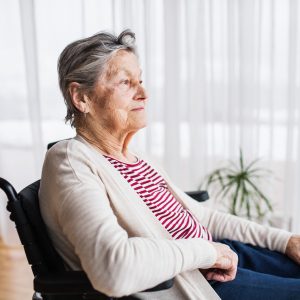Caregiving During Coronavirus: A Tough Job Gets Even Tougher

Caregiving During Coronavirus: A Tough Job Gets Even Tougher
April 1, 2020
It’s never an easy time to be a family caregiver but whatever your challenges, they’ve likely been magnified and exacerbated during the current COVID-19 pandemic. Whether you’re a spouse, adult child, sibling or other loved one, and whether you’re providing in-home care, oversight at a distance or daily visits to stay connected, your routines have likely been disrupted as your health, and the health of your loved one, has been put at risk. And, more than ever, you may have questions or be in search of resources or even avenues to express your rage and frustration. There is help available, even if it doesn’t always quite meet the moment. As a start, take a look at the caregiving resource page on the agebuzz website. In addition, numerous advocacy organizations have a range of online tips, resources, and support groups to get you through this period of time. For a few examples, check out the following sites: Care.com, The Alzheimer’s Association, and The Family Caregiver Alliance.
Specifically, regarding caregiving and coronavirus, Daily Caring has a list of 19 important questions (with answers and resources) that many caregivers may be asking. So take a deep breath and take a look here. For those with loved ones in facilities, the stress and strain of the moment are likely heightened by the limitations on, or exclusion of, visitors. Carolyn Rosenblatt writing in Forbes has a few suggestions to get you through, or around, those limitations. And while those visitor limitations in long term care may be heartbreaking, physician Jason Karlawish, writing in STAT, argues that they can be life-threatening in hospitalized patients, whose delirium may not be picked up in a timely fashion by hospital staff who don’t know the patient. He argues that family caregivers are not just “visitors” for such patients but rather an essential presence for older hospitalized adults, even in times of crisis. And if you think your loved one would be better off at home with you rather than in a facility during this crisis, that’s not a choice without risk as well. Writing in Kaiser Health News, journalist Judith Graham gives examples of families who have struggled with that decision, taking on the caregiving responsibilities at home and risking the loss of their place in the facility once the crisis is over.
For those caregiving for persons with dementia, the threats to routine and possible environmental or personnel changes can make a difficult situation even worse. As a recent article in The New York Times underscored, more than 16 million of us are currently caring for persons with dementia or Alzheimer’s, and between necessary precautions and inevitable caregiving disruptions, the impact of the virus may be overwhelming for patients who don’t understand what’s happening. And it’s especially challenging to know when a dementia patient herself may be feeling unwell. While dementia patients can react to caregiver stress levels and display changed behaviors as a result, more sudden behavioral changes could indicate fever or pain.
Finally, as has been pointed out in a recent US News article, this pandemic has made many of us long-distance caregivers, even if our loved ones are close by. And it’s given us plenty of useful ideas about how to shore-up communication, oversight, and connection in our caregiving roles once social distancing subsides. For ways to think and plan for the future, take out a notepad and jot down these ideas.







